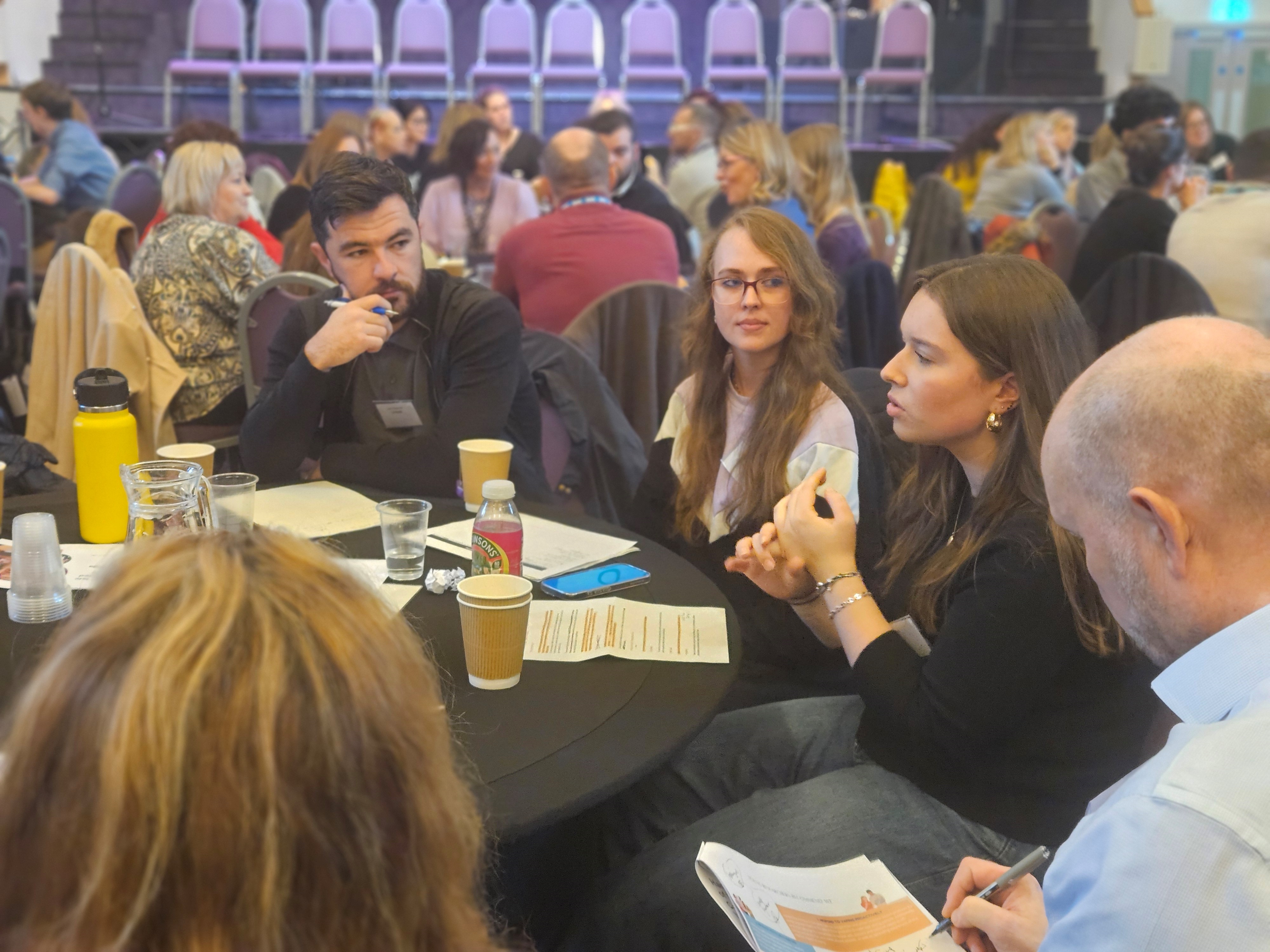Southampton teenagers urge collaboration on city’s future health policies

Young people from across Hampshire have called on Hampshire and Isle of Wight health leaders to collaborate with them on policies and initiatives aimed to improve health and well-being in their age group.
The group of 15 teenagers, who took part in the Young Research Training Programme (YRTP) at the University of Southampton, say that engaging with young people on the health and social care issues that affect them and listening to their lived experiences will lead to positive changes in the community.
The call was made at the Youth Assembly, a culmination of the 16-week YRTP, where the group presented 12 policy recommendations, they had developed based on their own research to around 90 professionals from Hampshire and the Isle of Wight’s Integrated Care Board, Integrated Care Partnership, local authorities and wider health stakeholders.
From expanding extra-curricular wellness activities to responding to vaping proactively to encouraging the mixed teaching of Sexual and Reproductive Education (SRE) to producing youth-led marketing of health programmes, the recommendations cover a range of issues affecting local young people.
Talitha McCleery, 17, took part in the programme and said: “ Young people want to and deserve to be, involved in decisions that impact their health and futures. We believe that the people who sit in positions of power must prioritise consulting with young people if they want their decisions to have real change and make a positive impact.”
Libby Tickner, 17, who also took part, added: “ We must all work together - school boards, local government, local charities and national non-governmental organisations - to ensure no opportunity is left wasted.”
The YRTP, in association with the University of Southampton’s LifeLab, aims to develop research and advocacy skills in young people, equipping them with tools to support their academic and employment journeys and beyond.
This year's programme focused on identifying and researching issues that mattered most to the participants and their peers, and then presenting these to the Hampshire and Isle of Wight Integrated Care Board as opportunities for improving youth health and wellbeing.
Working with community groups and health and social scientists and using different research techniques including focus groups, surveys and secondary data analysis, the group developed a range of health and social care priorities for young people. At a special three-day deliberative workshop in the summer, called The Youth Jury where the group interrogated local health leaders, they refined the priorities and produced a set of policy recommendations to improve young people’s health and wellbeing, which were then presented at the Youth Assembly.
Professor Mary Barker Professor of Psychology and Behavioural Science & Deputy Director of the Institute for Life Sciences – “We know that involving the public in research and the direction of research makes a world of difference, but we don’t do this enough with younger age groups. We feel that since policies are made about young people, they should be allowed to have their say on the health priorities that are important to them.
“The quality of research undertaken by the YRTP was extremely high. They carried out qualitative and quantitative research, had robust debates and as a result were able to develop skills that will support them in their future. We would like to thank members of the Hampshire and Isle of Wight ICB and ICP for their commitment to taking forward the young people’s recommendations and in so doing positively impact our community.”
Professor Matt Ryan, of Politics and International Relations at the University of Southampton, added: “Young people respond to other young people like themselves in a way they never would to us or local officials, and therefore the data and ideas that they came up with were of a different quality. The people responsible for implementing policy on the ground really recognised this. Our project showed the importance of giving those that are not often listened to a voice but also allowing them the time, and skills to learn for themselves so that their voice is strong.”